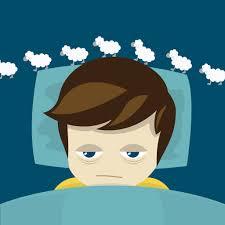Everyone knows how important sleep is, and parents all over the world will tell you how important sleep is for their children. A poor night's sleep cannot only ruin a child's day, but his/her Mom's, Dad's and teacher's day as well. The effects of poor sleep are especially heightened in children who suffer from attention-deficit/hyperactivity disorder (ADHD), the most commonly diagnosed developmental disorder in young children today. Children with ADHD who report having poor sleep often display more symptoms of inattention, hyperactivity, and impulsivity. Provided the detrimental effects these symptoms have on academic and social outcomes, amplifying symptoms with poor sleep only makes matters worse.
Recent work in my lab has shown that, compared to typically developing children, those with ADHD tend to experience an abnormally high amount of brain activity during rapid eye movement (REM) sleep. Children were asked to sleep in the lab while their brain activity was monitored overnight. Although total sleep time was comparable between groups of children with and without ADHD, theta activity during REM sleep was elevated in ADHD children. Interestingly, although children with ADHD had higher theta activity, this activity was not associated with reduced impulsivity in this group, as it was in healthy children. These data suggest that REM theta activity is inefficient in children with ADHD.
In my dissertation work, I hope to determine whether extending sleep duration, by encouraging children to go to sleep earlier at night, will reduce theta activity in children with ADHD to a level more comparative to healthy children. Prolonging sleep duration increases the amount of REM sleep that occurs during overnight sleep. I believe that increasing REM sleep will consequently reduce the overall intensity of theta activity during this sleep stage. If theta activity is reduced, daytime behaviors associated with an abnormally high amount of theta activity may also be improved. Specifically, impulsivity, a primary symptom of ADHD, may be improved in children with ADHD following sleep extension.
In the coming months we will begin collecting data for this study. In order to compensate children and their families for their participation, this project will be crowdfunded through Experiment.com. If you are interested in learning more about this project, asking questions, or donating, please follow this link - Can Extending Sleep Improve Cognition in Children with ADHD? We look forward to hearing from you!
